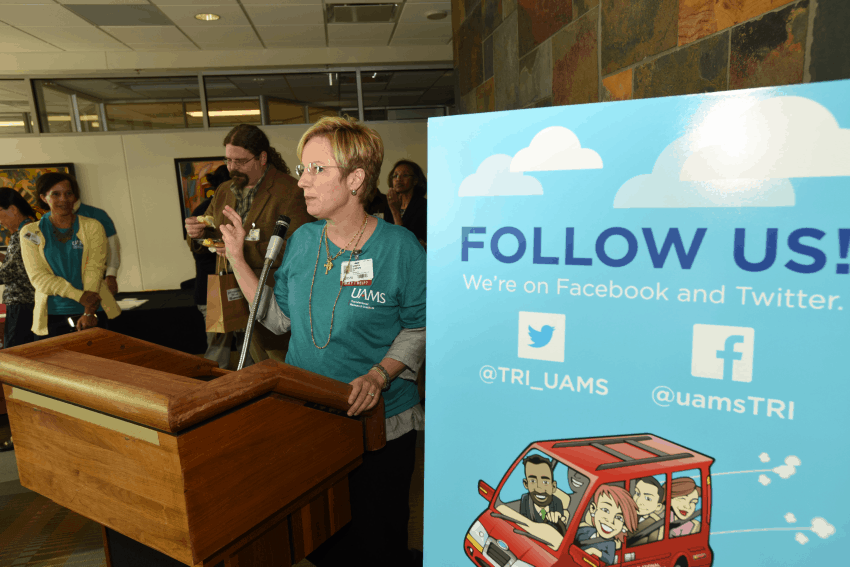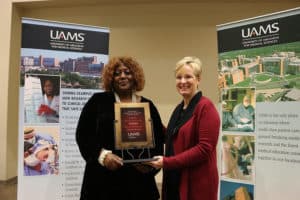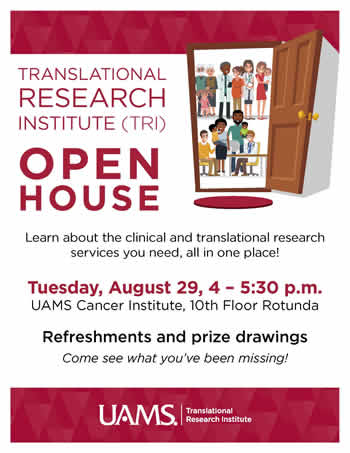The Western States Consortium, which includes the UAMS Translational Research Institute (TRI) and four other Clinical and Translational Science Award (CTSA) institutions, has issued the call to all faculty for pilot award applications.
In addition to TRI, the Western States Consortium members are the University of Kentucky, University of New Mexico, University of Kansas Medical Center, and University of Utah, all part of the national CTSA consortium, supported by the National Center for Advancing Translational Sciences (NCATS) of the National Institutes of Health (NIH). (Note: The University of Kansas Medical Center is not participating in this pilot program.)
The purpose of the pilot awards is to promote inter-institutional collaboration by funding innovative, translational research projects that involve two or more of the four Western States Consortium members. Awards of up to $25,000 will be provided by each participating institution.
Applications are due Jan. 19, 2018, at 5 p.m., (CT). Please submit to NLIndelicato@uams.edu.
For additional details, view the Request for Applications (RFA) document. If you have any questions, please contact Nia Indelicato at NLIndelicato@uams.edu or 501-614-2287.
Key Dates:
- IRB Submission Deadline: Nov. 24, 2017
- Application Deadline: Jan. 19, 2018 5:00 pm Central Time
- Notice of intent to fund at each CTSA: Feb. 2, 2018
- Just In Time Period: Feb. 2, 2018 – Feb. 9, 2018
- Submission to NIH for Prior Approval of Human Subjects: Feb. 12, 2018
- Funding Cycle: April 1, 2018 through March 31, 2019






